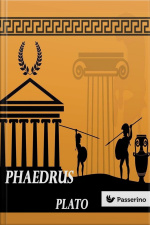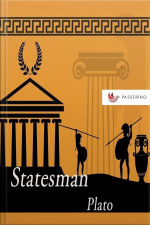In the Statesman the discussion is partly regarded as an illustration of method, and that analogies are brought from afar which throw light on the main subject. The search after...
Apology presents the speech of self-defence given by Socrates in his trial for impiety and corruption specifically against the charges of corrupting the young, and by not...
The Phaedrus written by Plato, is a dialogue between Plato's protagonist, Socrates, and Phaedrus, an interlocutor in several dialogues.Plato (424/423 – 348/347 BC) was a...
The awe with which Plato regarded the character of 'the great' Parmenides has extended to the dialogue which he calls by his name. None of the writings of Plato have been more...
The Statesman (also known by its Latin title, Politicus) is a Socratic dialogue written by Plato.The text depicts a conversation among Socrates, the mathematician Theodorus,...
The dramatic nature of Plato’s dialogues is delightfully evident in the "Symposium." The marriage between character and thought bursts forth as the guests gather at Agathon’s...
Socrates is on trial for his life. He is charged with impiety and corrupting young people. He presents his own defense, explaining why he has devoted his life to challenging the...
After Socrates is sentenced to death by the Athenian court, his friend Crito comes to the prison to help him escape and go to another country. Socrates responds by saying that he...
Gorgias of Leontini, a famous teacher of rhetoric, has come to Athens to recruit students, promising to teach them how to become leaders in politics and business. A group has...
Hippias of Elis travels throughout the Greek world practicing and teaching the art of making beautiful speeches. On a rare visit to Athens, he meets Socrates who questions him...











